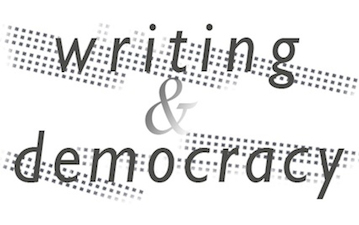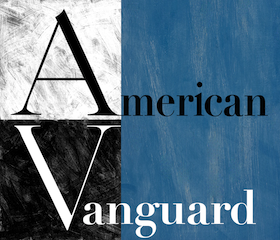Reflection: Mark Bibbins
William Carlos Williams wrote, “It is difficult / to get the news from poems / yet [people] die miserably every day / for lack / of what is found there.” Perhaps empathy was one of the things Williams thought could be “found there”—what does it say about our national discourse that this word has been seized by political strategists and commentators, and turned into a liability? In my classes I let people know that they can get the news from poets like Gertrude Stein and Anne Carson and Harryette Mullen and Juliana Spahr. But what happens when we try getting poems from the news? For instance:
I have been to lots of parties
and acted perfectly disgraceful
but I never actually
raped a girl in a series
of end-of-summer parties
penetrated the victim’s vagina
with my fingers
leaving her to wake up
naked the next morning
on a couch
in an unfamiliar house
in a down-on-its luck town
along the Ohio River
or testified that I used
my cellphone to record
myself putting my fingers inside
the girl’s vagina during a drive
from one party to another
deleting the video
the next morning
when I realized it was wrong
or testified that I later attempted
to have the girl perform
a sex act on me
in the basement of a home
“she didn’t really respond to it” I said
oh Candy and Poppy we love you get up
We would probably have some questions about such a poem, whether in a workshop or in a literature class. What is it for? What is the context? Who is speaking? To whom? What is the author’s intent? Are these even useful questions? Do they carry different significance than when we ask them of, say, a love poem? Was it even “written,” in the way we imagine most poems get written?
The first three lines and the last line are from Frank O’Hara’s “Poem [Lana Turner has collapsed!]”; in between is language taken from a CNN article on the Steubenville rape case. The poem was assembled and posted to Facebook after the two defendants were found guilty, and an exchange between CNN reporters Candy Crowly and Poppy Harlow came under fire because they seemed to be expressing more sympathy and concern for the rapists than for the girl who had been raped.
When we address, in art, a subject as complex and pervasive and malignant as what we have come to call rape culture, how fine are the lines between empathy and exploitation, homage and sabotage? If such lines even exist, who draws them? And then how do we locate them, let alone figure out how they might be tested? Is this figuring out up to the poet, or to readers? Is it ethical to mix O’Hara’s queer lyric exuberance with the language of corporate media, and/or to manipulate the quoted material (by swapping names and pronouns, for example)? How might a poem like this lead to conversations about scandal, privacy, violence, celebrity, misogyny, economics, responsibility? Is it a good idea to post a poem to a social media site on the same day it’s made? Can’t we just stick to love poems?
These are not easy questions to answer, but the Riggio Honors Program encourages us, as readers and writers in the world, to ask them.
Mark Bibbins received a Lambda Literary Award for his first collection of poems, Sky Lounge; his second, The Dance of No Hard Feelings, was published by Copper Canyon Press. He co-founded LIT, the journal of The New School graduate writing program. He is a recipient of a New York Foundation for the Arts fellowship in poetry. His work has appeared in the Paris Review, Boston Review, Poetry, and The Best American Poetry 2004.



